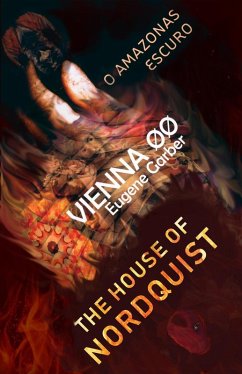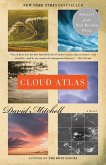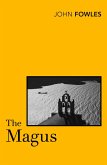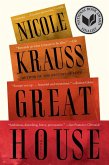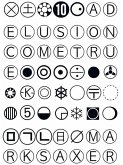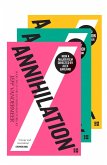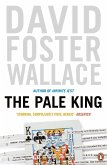Vienna ØØ, the first in the series, is populated by characters who closely resemble actual luminaries of fin de siècle Vienna-Mahler, Schiele, Klimt, Freud. But the real hero is the city herself. And the inexorable movement of the book is one of disrobing, an exquisite striptease. In these cunningly constructed stories the reader's engagement never flags, for nothing ever seems quite predestined. At every twist and turn hope and fear hang suspended until the last word, and often beyond.
O Amazonas Escuro, second in the series, portrays the adventures of K, a scientific anthropologist who is hell bent on bringing rational order to his descriptions of the culture of a tribe of Amazonian indigenes. But the tribe will not have it, persisting in its mythological treatments of sky, river, animals and self. Nor will outside visitors to the tribal compound, bringing with them botanical passions, wounds of war, erotic obsession, and cinematographic exploitation. Looming over the entire enterprise are spirits of clashing ideals, resonant voices of western thinkers from Plato to Derrida.
In The House of Nordquist, the final novel of The Eroica Trilogy, Eugene K. Garber creates his most demonic character of the series. Deep in the infernal regions of the bizarre house of his mad father, the Faustian Eric Nordquist conducts an atrocious experiment, extracting sounds for a world-changing symphony from the body of a Holocaust victim. He sucks everyone around him into the vortex of his mad dream of a cleansing cataclysm. His most devoted follower, Paul Albright, not only assists in the experiment but becomes infected with unholy powers. Now, years later, the House of Nordquist burned to the ground by an unknown arsonist, Eric is on the loose with the score of his abysmal symphony and Paul is in pursuit. Can Paul find Eric and the sinister score? If he does, what will he do?
The novels of The Eroica Trilogy share the common strategy of "genre iconoclasm." Where history is foregrounded, e.g. in Vienna ØØ, actual characters are renamed and their personalities rendered unstable. Where anthropology is central, e.g. in O Amazonas Escuro, ethnography is subjected to philosophical inspection and comic absurdity. In The House of Nordquist the conventions of Gothic fiction and mystery novels are radically skewed by the deflections of metafiction and indeterminacy.
Because the three novels are not narratively woven as in some trilogies, like Dos Passos's monumental USA, they need not be read in order. In fact, readers may profitably begin with the last published work, The House of Nordquist, because it brings to a dramatic and thematic climax virtually all of the questions of the trilogy:
* Is art salvational, or is it an anti-social act of destructive rebellion? * Can art ever escape the coils and thereby affect the course of history? * Why is the reaction to the avant-garde always so fierce?
Reading The House of Nordquist and then going back to the earlier novels, or beginning with Vienna ØØ and then progressing through to the deep-rooted entanglements that eventuate in the evil flower that is Eric Nordquist, are equally rewarding experiences. Either way, get started. You will get hooked.
Dieser Download kann aus rechtlichen Gründen nur mit Rechnungsadresse in A, B, CY, CZ, D, DK, EW, E, FIN, F, GR, H, IRL, I, LT, L, LR, M, NL, PL, P, R, S, SLO, SK ausgeliefert werden.

